 Sign in
Sign in
Arts
Dan Scholz
Every week The Folktale Project brings you new folklore, fairytales, myths and legends from around the world. Some tales you've heard before and some brand new.

The Devil's Match - A Czechoslovak Folktale
Once upon a time there was a poor farmer who lived in a wretched tumble-down cottage beyond the village and whose farm consisted of a miserable little field no bigger than your hand. His children were ragged and hungry and his wife was always worried over getting them enough to eat. Yet the farmer was a clever fellow with a quick shrewd wit and people used to say that he’d be able to fool the devil if ever he had the chance. One day the chance came.
13:2402/11/2018

General Moulton and The Devil - An American Folktale
Jonathan Moulton, of Hampton, was a general of consequence in the colonial wars, but a man not always trusted in other than military matters. It was even hinted that his first wife died before her time, for he quickly found consolation in his bereavement by marrying her companion. In the middle of the night the bride was awakened with a start, for she felt a cold hand plucking at the wedding-ring that had belonged to the buried Mrs. Moulton, and a voice whispered in her ear, “Give the dead her own.” With a scream of terror she leaped out of bed, awaking her husband and causing candles to be brought. The ring was gone.
07:4729/10/2018
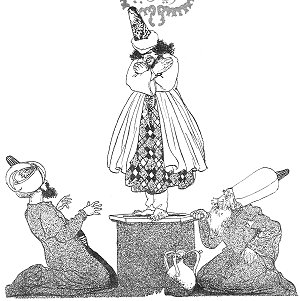
The Wizard-Dervish - A Turkish Folktale
A long time ago lived a Padishah who had no son. As he was taking a walk with his lala one day, they came to a well, near which they stopped to wish. A dervish suddenly appeared and cried: "All hail, my Padishah!" upon which the latter made answer: "If you know that I am the Padishah, then can you tell me the cause of my sorrow." The dervish drew an apple from his breast and said: "Your sorrow is that you have no son. Take this apple; eat half yourself and give the other half to your wife; then in due time you shall have a son. He shall belong to you till his twentieth year afterwards he is mine." With these words he vanished.
10:3826/10/2018

The Liver - A Turkish Folktale
An old woman once fancied some liver to eat, so she gave her daughter a few paras with which to buy a portion. "Wash it in the pond and bring it straight home," she said. The girl went accordingly to the tscharschi, and having bought the liver, carried it to the pond and washed it. As she with drew it from the water, however, a stork swooped down upon the liver and flew off with it. The girl exclaimed: "Give me back the liver, O stork, that I may take it to my mother, or she will beat me." "If thou wilt give me barley, I will give thee back the liver," replied the stork.
06:2724/10/2018

The Creation - A Turkish Folktale
Allah, the most gracious God, whose dwelling, place is the seventh heaven, completed the work of creation. Seven planes has the heaven and seven planes also the earth--the abode of evil spirits. In the heavenly ways reside the peris, or good spirits; in the earthly darkness the dews, or evil spirits. The light of heaven is in conflict with the darkness of earth--the peris with the dews. The peris soar to heaven, high above the earth; but the dews sink down into the darkness under the earth. Mountains bar the road to heaven, and only the good spirits can reach the Copper Range, whence the way is open to the Silver Mountains and the Hills of Gold. Evil spirits are blinded by the ineffable radiance of heaven. Their dwelling place is the depths of the earth, the entrance to which is at the spring of waters. There tarry the white and the black sheep, into whose wool the evil spirits penetrate, and are so conveyed to their realm on the seventh plane. On the white sheep they return to the earth's surface. Peris and dews are powerful, and both were witnesses of the creation of earth's original inhabitant, the First Man.
05:4522/10/2018

Parsley - An Italian Folktale
There was, once upon a time, a woman named Pascadozzia, and one day, when she was standing at her window, which looked into the garden of an ogress, she saw such a fine bed of parsley that she almost fainted away with desire for some. So when the ogress went out she could not restrain herself any longer, but plucked a handful of it. The ogress came home and was going to cook her pottage when she found that some one had been stealing the parsley, and said, “Ill luck to me, but I’ll catch this long-fingered rogue and make him repent it; I’ll teach him to his cost that every one should eat off his own platter and not meddle with other folks’ cups.” The poor woman went again and again down into the garden, until one morning the ogress met her, and in a furious rage exclaimed, “Have I caught you at last, you thief, you rogue; prithee, do you pay the rent of the garden that you come in this impudent way and steal my plants? By my faith, I’ll make you do penance without sending you to Rome.”
11:2419/10/2018

The Ant and The Mouse - An Italian Folktale
There was once an ant who, while sweeping her house one day, found three quattrini, and began to say: “What shall I buy? What shall I buy? Shall I buy meat? No, because meat has bones, and I should choke. Shall I buy fish? No, for fish has bones, and I should be scratched.” After she had mentioned many other things, she concluded to buy a red ribbon. She put it on, and sat in the window. An ox passed by and said: “How pretty you are! do you want me for your husband?” She said: “Sing, so that I may hear your voice.” The ox with great pride raised his voice. After the ant had heard it, she said: “No, no, you frighten me.”
04:0817/10/2018
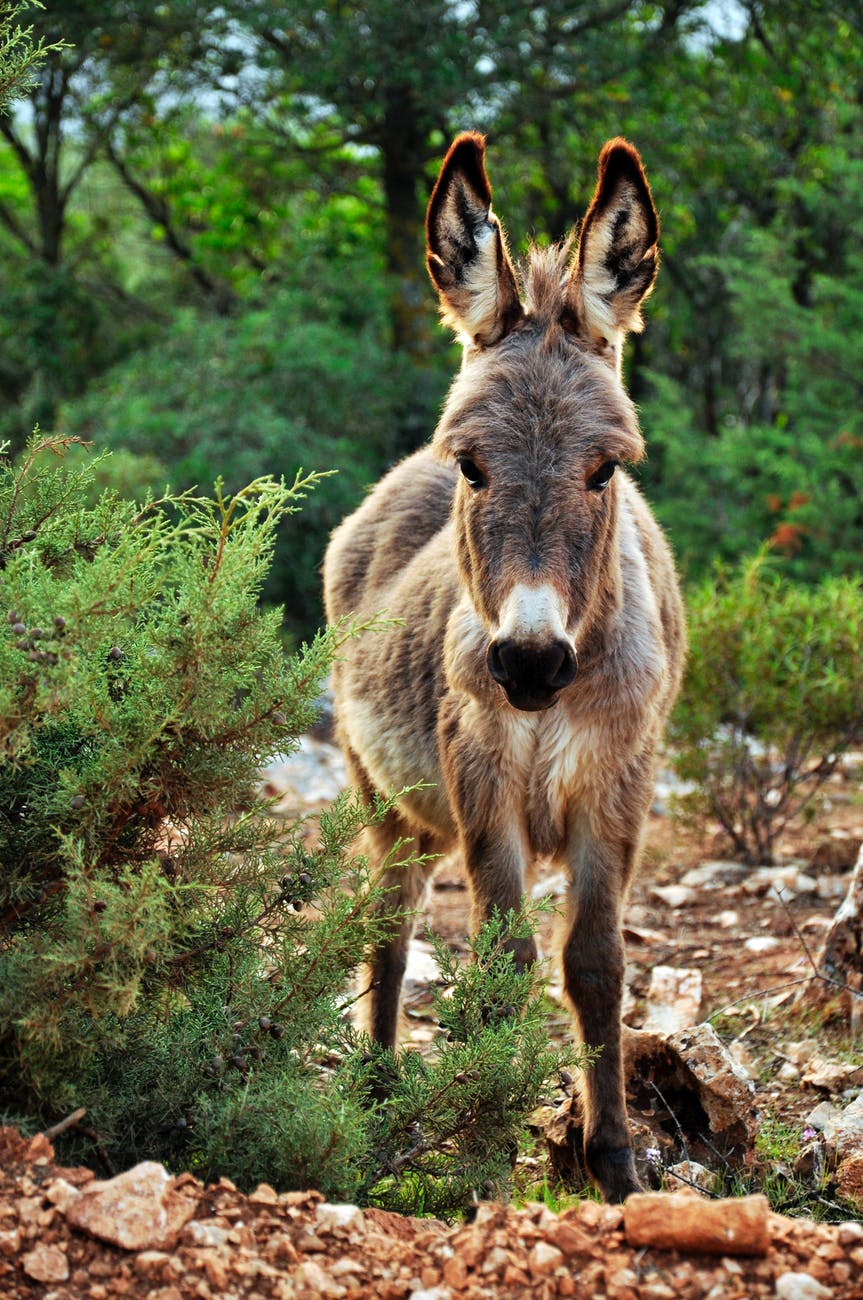
The Ass That Lays Money - An Italian Folktale
There was once a poor widow with an only son, and whose brother-in-law was a steward. One day she said to her child: “Go to your uncle and ask him to give you something to keep you from starving.” The boy went to the farm and asked his uncle to help him a little. “We are dying of hunger, uncle. My mother earns a little by weaving, and I am too small to find anything. Be charitable to us, for we are your relatives.” The steward answered: “Why not? You should have come sooner and I would have helped you the sooner. But now I will give you something to support you always, without need of anything more. I will give you this little ass that lays money. You have only to put a cloth under him, and he will fill it for you with handsome coins. But take care! Don’t tell it, and don’t leave this animal with any one.” The youth departed in joy, and after he had travelled a long way, he stopped at an inn to sleep, for his house was distant. He said to the landlord: “Give me a lodging, but look! my ass spends the night with me.” “What!” said the landlord, “what are you thinking about! It cannot be.” The youth replied: “Yes, it can be, because my ass does not leave my side.”
10:0115/10/2018
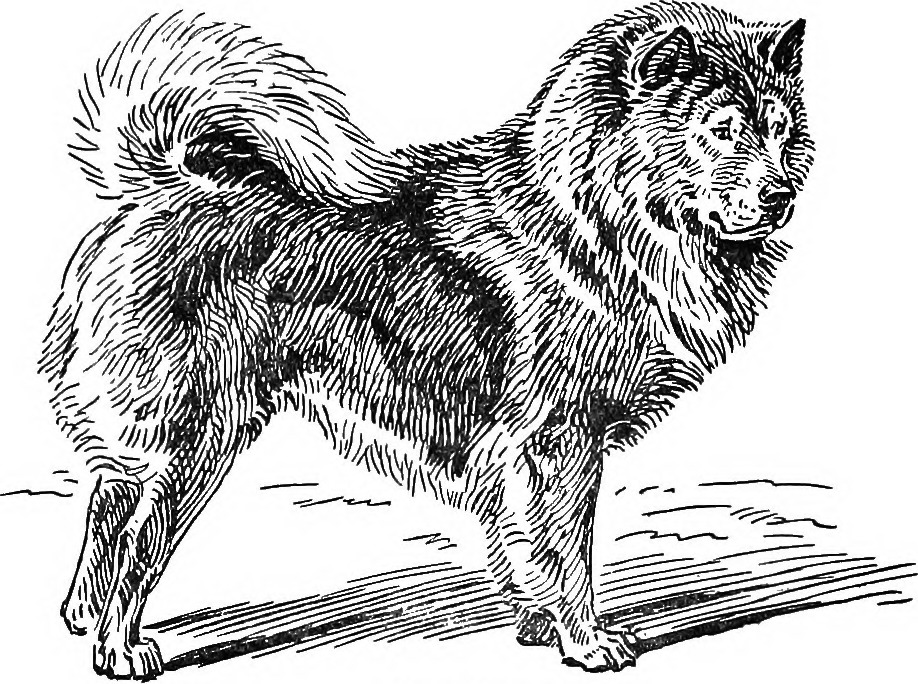
The Little Hunting Dog - A Chinese Folktale
Once upon a time, in the city of Shansi, there lived a scholar who found the company of others too noisy for him. So he made his home in a Buddhist temple. Yet he suffered because there were always so many gnats and fleas in his room that he could not sleep at night. Once he was resting on his bed after dinner, when suddenly two little knights with plumes in their helmets rode into the room. They might have been two inches high, and rode horses about the size of grasshoppers. On their gauntleted hands they held hunting falcons as large as flies. They rode about the room with great rapidity. The scholar had no more than set eyes on them when a third entered, clad like the others, but carrying a bow and arrows and leading a little hunting dog the size of an ant with him. After him came a great throng of footmen and horsemen, several hundred in all. And they had hunting falcons and hunting dogs by the hundred, too. Then the fleas and gnats began to rise in the air; but were all slain by the falcons. And the hunting dogs climbed on the bed, and sniffed along the walls trailing the fleas, and ate them up. They followed the trace of whatever hid in the cracks, and nosed it out, so that in a short space of time they had killed nearly all the vermin.
06:2312/10/2018

A Legend of Confucius - A Chinese Folktale
When Confucius came to the earth, the Kilin, that strange beast which is the prince of all four-footed animals, and only appears when there is a great man on earth, sought the child and spat out a jade whereon was written: “Son of the Watercrystal you are destined to become an uncrowned king!” And Confucius grew up, studied diligently, learned wisdom and came to be a saint. He did much good on earth, and ever since his death has been reverenced as the greatest of teachers and masters. He had foreknowledge of many things. And even after he had died he gave evidence of this.
04:4210/10/2018

Fox-Fire - A Chinese Folktale
Once upon a time there was a strong young farmer who came home late one evening from market. His way led him past the gardens of a wealthy gentleman, in which stood a number of tall buildings. Suddenly he saw something shining floating in the air inside the gardens, something which glowed like a ball of crystal. He was astonished, and climbed the wall around the gardens, but there was not a human being in sight; all he saw was, at a distance, something which appeared to be a dog, looking up at the moon. And whenever it blew its breath out a ball of fire came out of its mouth, and rose to the moon. And whenever it drew its breath in the ball sank down again, and it caught it in its jaws. And so it went on without a stop. Then the farmer realized that it was a fox, who was preparing the elixir of life.
05:3608/10/2018

The Dancers - A German Folktale
The Sabbath-day drew to a close in the summer-tide of the year of grace one thousand and one, and the rustics of Ramersdorf amused themselves with a dance, as was their wont to do, in the courtyard of the monastery. It was a privilege that they had enjoyed time immemorial, and it had never been gainsaid by the abbots who were dead and gone, but Anselm von Lowenberg, the then superior of the convent, an austere, ascetic man, who looked with disdain and dislike on all popular recreations, had long set his face against it, and had, moreover, tried every means short of actual prohibition to put an end to the profane amusement. The rustics, however, were not to be debarred by his displeasure from pursuing, perhaps, their only pleasure; and though the pious abbot discountenanced their proceedings, they acquiesced not in his views, and their enjoyment was not one atom the less.
08:4105/10/2018

The Flaming Castle - A German Folktale
Upon a high mountain in the Tyrol there stands an old castle, in which there burns a fire every night, and the flashes of that fire are so large that they rise up over the walls, and may be seen far and wide. It happened once that an old woman in want of firewood was gathering the fallen twigs and branches upon this castle-crowned mountain, and at length arrived at the castle door. To indulge her curiosity she began peering about her, and at last entered, not without difficulty, for it was all in ruins and not easily accessible. When she reached the courtyard, there she beheld a goodly company of nobles and ladies seated and feasting at a huge table. There were, likewise, plenty of servants, who waited upon them, changing their plates, handing round the viands, and pouring out wine for the party. As she thus stood gazing upon them, there came one of the servants, who drew her on one side, and placed a piece of gold in the pocket of her apron, upon which the whole scene vanished in an instant, and the poor frightened old woman was left to find her way back as well as she could. However, she got outside the courtyard, and there stood before her a soldier with a lighted match, whose head was not placed upon his neck, but held by him under his arm. He immediately addressed the old woman, and commanded her not to tell any one what she had seen and heard upon peril of evil befalling her.
06:1903/10/2018

The Conclave of Corpses - A German Folktale
Some three hundred years since, when the convent of Kreutzberg was in its glory, one of the monks who dwelt therein, wishing to ascertain something of the hereafter of those whose bodies lay all undecayed in the cemetery, visited it alone in the dead of night for the purpose of prosecuting his inquiries on that fearful subject. As he opened the trap-door of the vault a light burst from below; but deeming it to be only the lamp of the sacristan, the monk drew back and awaited his departure concealed behind the high altar. The sacristan emerged not, however, from the opening; and the monk, tired of waiting, approached, and finally descended the rugged steps which led into the dreary depths. No sooner had he set foot on the lowermost stair, than the well-known scene underwent a complete transformation in his eyes. He had long been accustomed to visit the vault, and whenever the sacristan went thither, he was almost sure to be with him. He therefore knew every part of it as well as he did the interior of his own narrow cell, and the arrangement of its contents was perfectly familiar to his eyes. What, then, was his horror to perceive that this arrangement, which even but that morning had come under his observation as usual, was altogether altered, and a new and wonderful one substituted in its stead.
11:5301/10/2018

The Wanderers - A Maori Folktale
Somewhere far across the sea lies Hawa-iki, that wonderful Motherland where the sun’s rays glow from early dawn to sudden night. Nobody knows now where that old land is, nobody has ever found it again, but its far-strewn sons and daughters still tell of its remembered glories, its radiant sunshine, its flowers and butterflies, its white-topped mountains and its mighty streams. Some think it may have been India, while others say it must have been some age-old continent which has since sunk and now lies buried under the Pacific Ocean...
09:1228/09/2018
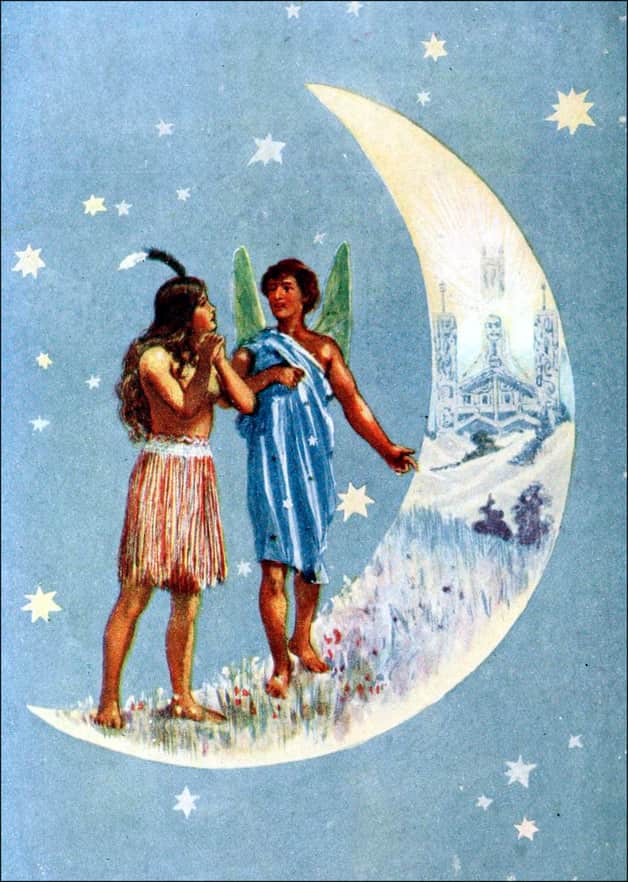
On The Moon - A Maori Folktale
When Shining-Eyes threw the Fire-that-never- goes-out into the sky it was only a flaming stick, but it grew rounder and wider and cooler, until at last it became a great Moon-land. It was a wonderland place. Everything gave out a golden light — mountains and lakes, rocks and trees and flowers, and even the walls and spires of a beautiful moon-palace that Marama had built. In the palace lived Marama, all alone. At first he had been so charmed with his fine new land that he had not noticed the loneliness, but after some time he began to say to himself: “Why have I no one to share my work and play? There is no pleasure in playing star-ball by myself, and I am tired of singing with no one to listen. Oh, for a companion!” He asked the Sky-fairies to live with him, but they refused; they had their stars to guard. He looked down on the earth. A beautiful girl with a calabash in her hand walked to a stream at the foot of a hill for water. A young man ran down the hill after her. “Ina! Ina! ” he called. It was her old playmate, the friend she loved better than anybody else. She waited for him. They went to the stream together, and Marama watched the return. Several times the girl’s face was turned upwards to the moon; each time Marama thought it more beautiful. All next day he could think of nothing else.
10:1026/09/2018

Wonderwings - A New Zealand Fairy Tale
Poppypink sat up in bed and yawned. "Why is everybody getting up so early?" she asked. "Is it a holiday?" The older fairies were dressing themselves and brushing their long fine hair. "Wonderwings is coming to see us," they said. "Jump up, little Poppypink." "Who is Wonderwings?" she asked. "You will see when you are dressed. Hurry, or you will miss her." "The older fairies were dressing themselves and combing their long fine hair." "Oh dear! I am so sleepy," said Poppypink, and she yawned again. "I don't care about Wonderwings." She snuggled down into the bedclothes again, and went to sleep. Presently she was awakened by the sound of the sweetest singing she had ever heard, and a flash of brilliant colour went past her window pane of crystal set in pearl. "That must be Wonderwings," she said. "Oh, I must see her. I hope I am not too late." She sprang from bed and dressed so hurriedly that I am afraid her hair did not receive its due amount of brushing. Then she ran out into the garden. The older fairies stood all in a group, saying loudly "I will go," and "I will go." And before them, scarcely touching the ground with the tip of her foot, stood poised a glorious fairy, taller than any other there. She was altogether beautiful; and her wings—as soon as Poppypink saw them she knew why the visitor had been called Wonderwings. For they reached high above her head and almost to the ground, and they glowed with so many colours that it seemed as if a million jewels had been Hung upon them and had stuck, growing into a million flashing stars that made a million little rainbows with every sway and movement of her body. "How lovely! Oh, how lovely!" cried Poppypink. She crept nearer to the beautiful fairy and sat among the daisies at her feet. "See," she cried. "My wings are small and colourless. Tell me how I may grow wings like yours." Just as little girls adore beautiful hair, so do little fairies adore beautiful wings.
08:4124/09/2018

Ermine and The Hunter
Far away in the Canadian North Country an old man lived with his wife and children. They lived far from other people, but they were never lonely, for they had much work to do. The old man was a great hunter, and in summer he and his wife and children lived on the fish and game he captured in the winter. In the springtime he gathered sap from the maple trees, from which he made maple syrup and maple sugar with which to sweeten their food. One day in summer he found three small bears eating his stock of sugar. When he came upon them, his sugar was all gone, and he was very cross. With a stout club he killed the little bears and skinned them and dried their meat. But his wife said, “No good can come of it. You should not have killed the three little bears, for they were too young for slaughter.”
13:2521/09/2018

The Tobacco Fairy from The Blue Hills
A man and his wife and two little children were living long ago on the shores of a lake surrounded by large trees, deep in the Canadian forest. They lived very happily together, and as game was plentiful, they wanted for nothing. As the children grew up they became each day more beautiful and gentle, until the old women of the tribe said, “They are too good and lovely for this world; their home is surely elsewhere in the West.” Before they grew to maturity a cruel plague spread over the land and carried them off with its ravages. Their mother was the next to go, slowly growing weaker, and wasting away before the eyes of her husband, who was powerless to save her. The man was now left all alone upon the earth. The joy of his life had gone with his wife and children, and he went about in great loneliness and sorrow. Life was long to him and dreary, and often he wished that he too was dead. But at last he roused himself and said, “I will go about doing good. I will spend my life helping others, and perhaps in that way I can find peace.” So he worked hard and did all the good he could for the weaker and the poorer people of his tribe. He was held in high esteem by all the people of the village, and in their affection for him they all called him “Grandfather.” He grew to be very old, and because of his good deeds he found great happiness. But he was still very solitary, and the days and evenings were long and lonely, and as he grew older and his work grew less, he found it hard to pass away the time, for he could only sit alone and dream of his vanished youth and of his absent friends.
10:2119/09/2018

The Mermaid of the Magdalenes
Far off the north-east coast of Canada is a group of rugged islands called the Magdalenes. They are a lonely, barren group, where grass and flowers and trees grow scantily. There, the northern storms rage with their wildest fury, and the sea breaks with its greatest force upon the bleak rocks. Numberless birds of strange cries and colors fly constantly about. On days when the storm dashes the sea white and angry against the coast, even the thunder of the surf is almost shut out by the screaming of countless gulls; and on clear days the sun is hidden when the birds rise in clouds from their nests. The “Isle of Birds,” the Jesuits called one of the islands when they first visited the group hundreds of years ago, and it is an “Isle of Birds” still. It is a wild and rock-bound desolate land. But although the islands are barren of grass and flowers and trees, the waters around and between them are rich in fish. “The Kingdom of Fish,” men call the place, for adventurous traders grow wealthy there reaping the harvest of the sea.
11:2517/09/2018
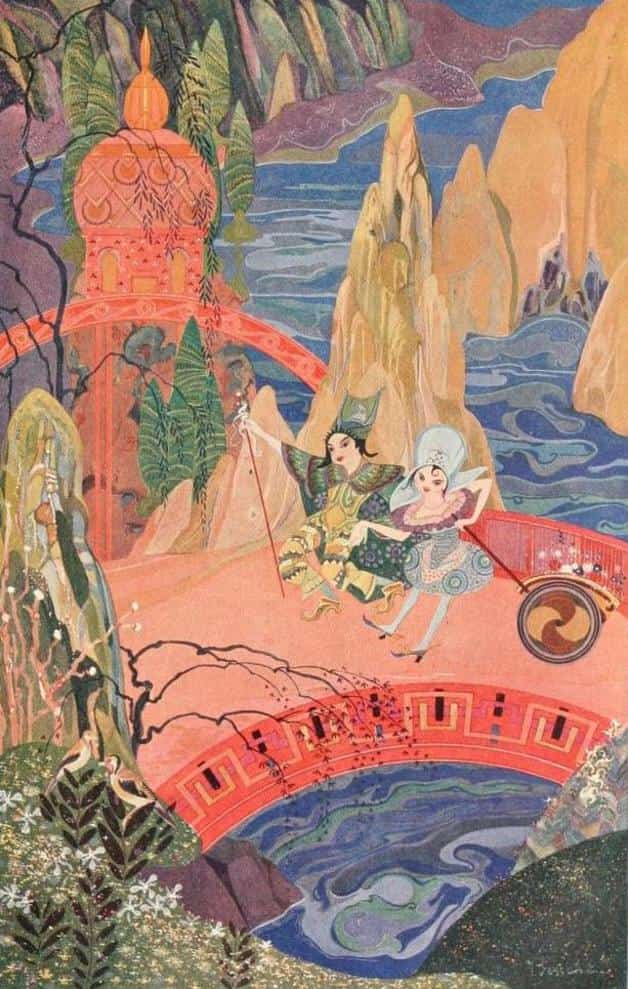
The Sugar-Candy House
Jan and Jannette were brother and sister. They lived near a big wood, and every day they used to go to play there, fishing for sticklebacks in the streams, and making necklaces of red berries. One day they wandered farther from their home than usual, and all of a sudden they came to a brook crossed by a pretty red bridge. On the other side of the bridge, half hidden among the trees, they espied the roofs of a little pink cottage, which, when they came closer, they found to be built entirely of sugar-candy! Here was a delightful find for a little boy and girl who loved sweetstuff! They lost no time in breaking off pieces of the roof and popping them into their mouths.
08:0414/09/2018

Why Cats Always Wash After Eating
A long time ago a cat caught a sparrow, and licked his lips in anticipation of the delight he would feel in devouring it. After playing with it for a time, as cats will, he was going to eat it, when the sparrow spoke to him. “The Emperor’s cat,” said the sparrow, “and all his family, never begin a meal without washing themselves first. Everybody knows that such is the custom in polite society.”
03:0012/09/2018
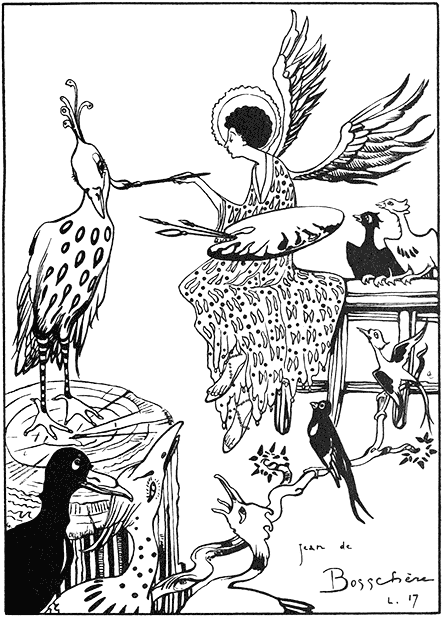
How the Goldfinch Got His Colors
When the Angel whose mission it was to color the birds had finished his work, he began to scrape his palette and to make ready for departure. He had done his task well, for the plumage of the feathered creatures all around him glowed with a thousand glorious colors. There was the lordly eagle, arrayed in a robe of golden brown. The peacock had a tail of shimmering blue and green that looked as if it were studded with precious stones. The crow’s black coat shone in the sun with a kind of steely radiance, very wonderful to behold. The canary was as yellow as a buttercup; the jay had a spot of blue sky on either wing; even the humble sparrow wore a handsome black neck-tie; while Chanticleer, the cock, was resplendent in yellow, black, and red.
05:1510/09/2018

Prince Spin Head and Miss Snow White
Long, long ago, before the Romans came into the land and when the fairies ruled in the forest, there was a maiden who lived under an oak tree. When she was a baby they called her Bundlekin. She had four brothers, who loved their younger sister very dearly and did everything they could to make her happy. Her fat father was a famous hunter. When he roamed the woods, no bear, wolf, aurochs, roebuck, deer, or big animal of any kind, could escape from his arrows, his spear, or his pit-trap. He taught his sons to be skilful in the chase, but also to be kind to the dumb creatures when captured. Especially when the mother beast was killed, the boys were always told to care for the cubs, whelps and kittens. As for the smaller animals, foxes, hares, weasels, rabbits and ermine, these were so numerous, that the father left the business of hunting them to the lads, who had great sport. The house under the oak tree was always well provided with meat and furs. The four brothers brought the little animals, which they took in the woods, to make presents to their sister. So there was always a plenty of pets, bear and wolf cubs, wildcats’ kittens and baby aurochs for the girl to play with. Every day, while the animals were so young as to be fed on milk, she enjoyed frolicking with the four-footed babies. When they grew bigger, she romped and sported with them, as if she and they were equal members of the same family. The older brother watched carefully, so that the little brutes, as they increased in size, should not bite or claw his sister, for he knew the fierce nature that was in wild creatures. Yet the maiden had wonderful power over these beasts of the forest, whether little or big. She was not very much afraid of them and often made them run, by looking at them hard in the eye.
17:5707/09/2018

The Goblins Turned to Stone
When the cow came to Holland, the Dutch folks had more and better things to eat. Fields of wheat and rye took the place of forests. Instead of acorns and the meat of wild game, they now enjoyed milk and bread. The youngsters made pets of the calves and all the family lived under one roof. The cows had a happy time of it, because they were kept so clean, fed well, milked regularly, and cared for in winter. By and by the Dutch learned to make cheese and began to eat it every day. They liked it, whether it was raw, cooked, toasted, sliced, or in chunks, or served with other good things. Even the foxes and wild creatures were very fond of the smell and taste of toasted cheese. They came at night close to the houses, often stealing the cheese out of the pantry. When a fox would not, or could not, be caught in a trap by any other bait, a bit of cooked cheese would allure him so that he was caught and his fur made use of.
13:5105/09/2018

The Boy Who Wanted More Cheese
Klaas Van Bommel was a Dutch boy, twelve years old, who lived where cows were plentiful. He was over five feet high, weighed a hundred pounds, and had rosy cheeks. His appetite was always good and his mother declared his stomach had no bottom. His hair was of a color half-way between a carrot and a sweet potato. It was as thick as reeds in a swamp and was cut level, from under one ear to another. Klaas stood in a pair of timber shoes, that made an awful rattle when he ran fast to catch a rabbit, or scuffed slowly along to school over the brick road of his village. In summer Klaas was dressed in a rough, blue linen blouse. In winter he wore woolen breeches as wide as coffee bags. They were called bell trousers, and in shape were like a couple of cow-bells turned upwards. These were buttoned on to a thick warm jacket. Until he was five years old, Klaas was dressed like his sisters. Then, on his birthday, he had boy’s clothes, with two pockets in them, of which he was proud enough.
15:1103/09/2018
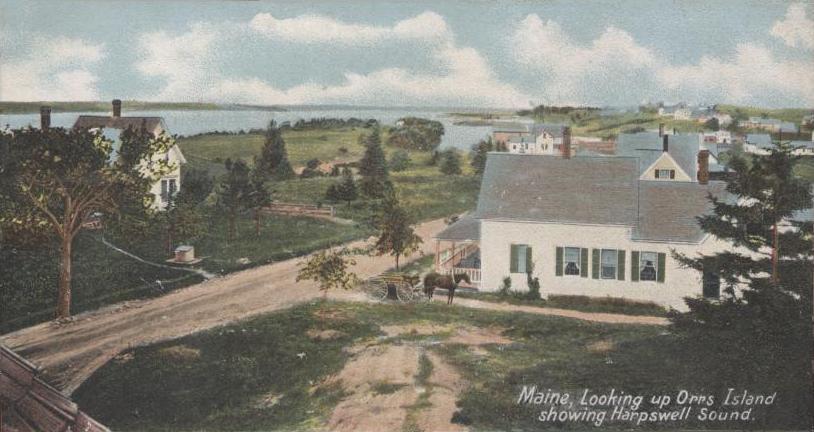
The Dead Ship of Harpswell
At times the fisher-folk of Maine are startled to see the form of a ship, with gaunt timbers showing through the planks, like lean limbs through rents in a pauper’s garb, float shoreward in the sunset. She is a ship of ancient build, with tall masts and sails of majestic spread, all torn; but what is her name, her port, her flag, what harbor she is trying to make, no man can tell, for on her deck no sailor has ever been seen to run up colors or heard to answer a hail. Be it in calm or storm, in-come or ebb of tide, the ship holds her way until she almost touches shore.
03:4831/08/2018

The Loss of Jacob Hurd
Jacob Hurd, stern witch-harrier of Ipswich, can abide nothing out of the ordinary course of things, whether it be flight on a broomstick or the wrong adding of figures; so his son gives him trouble, for he is an imaginative boy, who walks alone, talking to the birds, making rhymes, picking flowers, and dreaming. That he will never be a farmer, mechanic, or tradesman is as good as certain, and one day when the child runs in with a story of a golden horse, with tail and mane of silver, on which he has ridden over land and sea, climbing mountains and swimming rivers, he turns pale with fright lest the boy be bewitched; then, as the awfulness of the invention becomes manifest, he cries, “Thou knowest thou art lying,” and strikes the little fellow.
04:4129/08/2018

The Forest Smithy
Early in this century a man named Ainsley appeared at Holyoke, Massachusetts, and set up a forge in a wood at the edge of the village, with a two-room cottage to live in. A Yankee peddler once put up at his place for shelter from a storm, and as the rain increased with every hour he begged to remain in the house over night, promising to pay for his accommodation in the morning. The blacksmith, who seemed a mild, considerate man, said that he was willing, but that, as the rooms were small, it would be well to refer the matter to his wife. As the peddler entered the house the wife—a weary-looking woman with white hair—seated herself at once in a thickly-cushioned arm-chair, and, as if loath to leave it, told the peddler that if he would put up with simple fare and a narrow berth he was welcome.
06:0927/08/2018

The Town Mouse and The Country Mouse
Now you must know that a Town Mouse once upon a time went on a visit to his cousin in the country. He was rough and ready, this cousin, but he loved his town friend and made him heartily welcome. Beans and bacon, cheese and bread, were all he had to offer, but he offered them freely. The Town Mouse rather turned up his long nose at this country fare, and said: “I cannot understand, Cousin, how you can put up with such poor food as this, but of course you cannot expect anything better in the country; come you with me and I will show you how to live. When you have been in town a week you will wonder how you could ever have stood a country life.”
04:0624/08/2018

The Jackdaw and The Peacocks
A certain Jackdaw was so proud and ambitious, that, not contented to live within his own sphere, he picked up the feathers which fell from the Peacocks, stuck them in among his own, and very confidently introduced himself into an assembly of those beautiful birds.
03:5222/08/2018

The Hares and Frogs in a Storm
Upon a great storm of wind that blew among the trees and bushes, and made a rustling with the leaves, the Hares (in a certain park where there happened to be plenty of them) were so terribly frighted, that they ran like mad all over the place, resolving to seek out some retreat of more security, or to end their unhappy days by doing violence to themselves.
03:5820/08/2018

The Flute
Long since, there lived in Yedo a gentleman of good lineage and very honest conversation. His wife was a gentle and loving lady. To his secret grief, she bore him no sons. But a daughter she did give him, whom they called O’Yoné, which, being interpreted, is “Rice in the ear.” Each of them loved this child more than life, and guarded her as the apple of their eye. And the child grew up red and white, and long-eyed, straight and slender as the green bamboo. When O’Yoné was twelve years old, her mother drooped with the fall of the year, sickened, and pined, and ere the red had faded from the leaves of the maples she was dead and shrouded and laid in the earth. The husband was wild in his grief. He cried aloud, he beat his breast, he lay upon the ground and refused comfort, and for days he neither broke his fast nor slept. The child was quite silent.
12:4417/08/2018

The Good Thunder
Folks say that Rai-den, the Thunder, is an unloving spirit, fearful and revengeful, cruel to man. These are folks who are mortally afraid of the storm, and who hate lightning and tempest; they speak all the evil they can of Rai-den and of Rai-Taro, his son. But they are wrong. Rai-den Sama lived in a Castle of Cloud set high in the blue heaven. He was a great and mighty god, a Lord of the Elements. Rai-Taro was his one and only son, a brave boy, and his father loved him. In the cool of the evening Rai-den and Rai-Taro walked upon the ramparts of the Castle of Cloud, and from the ramparts they viewed the doings of men upon the Land of Reed Plains. North and South and East and West they looked. Often they laughed—oh, very often; sometimes they sighed. Sometimes Rai-Taro leaned far over the castle walls to see the children that went to and fro upon earth.
11:1415/08/2018

The Black Bowl
Long ago, in a part of the country not very remote from Kioto, the great gay city, there dwelt an honest couple. In a lonely place was their cottage, upon the outskirts of a deep wood of pine trees. Folks had it that the wood was haunted. They said it was full of deceiving foxes; they said that beneath the mossy ground the elves built their kitchens; they said that long-nosed Tengu had tea-parties in the forest thrice a month, and that the fairies’ children played at hide-and-seek there every morning before seven.
16:4113/08/2018

Truthful Joseph
Once upon a time there was a mother who had a son named Joseph; and because he never told a lie she called him Truthful Joseph. One day when she was calling him, the king happened to pass by, and hearing her call him thus, asked her: "Why do you call him Truthful Joseph?" "Because he never tells a lie." Then the king said that he would like to have him in his service, and set him to keeping his cows.
04:4610/08/2018

The Ass
It is related that when the Lord created the world, he also made all the animals, and gave each its name. He also created the ass, which said: “Lord, what is my name?” “Your name is ass!” The ass went away well pleased. After a while it forgot its name, and went back to the Lord. “Lord, what is my name?” “Ass!”
04:0408/08/2018

The Parrot
There was once a merchant who had a beautiful daughter, with whom the king and the viceroy were both in love. The former knew that the merchant would soon have to depart on business, and he would then have a chance to speak with the girl. The viceroy knew it, too, and pondered on how he could prevent the king succeeding in his plan. He was acquainted with a witch, and promised her immunity and a large sum of money if she would teach him how to change himself into a parrot. This she did, and of course the merchant bought him for his daughter, and departed.
04:3306/08/2018
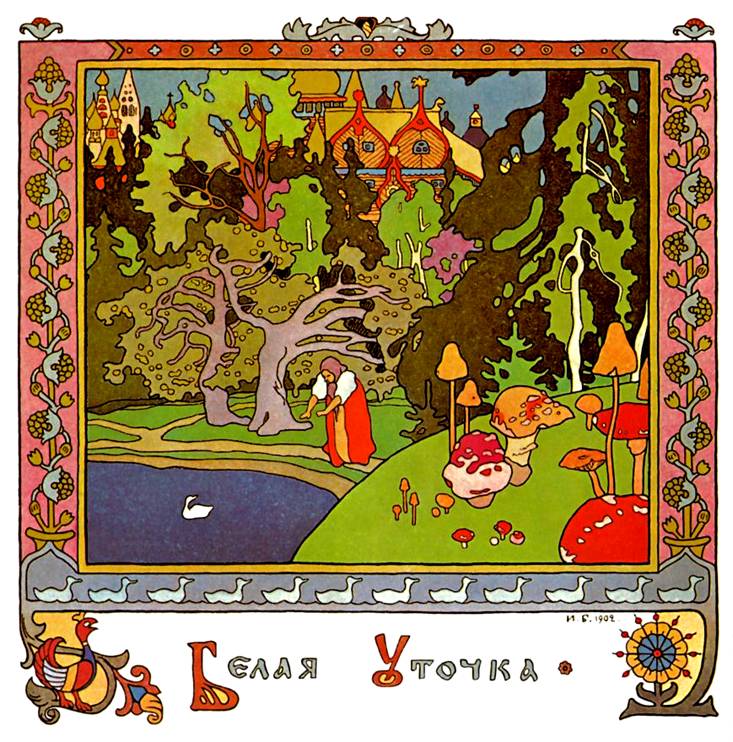
The White Duck
Once upon a time a great and powerful King married a lovely Princess. No couple were ever so happy; but before their honeymoon was over they were forced to part, for the King had to go on a warlike expedition to a far country, and leave his young wife alone at home. Bitter were the tears she shed, while her husband sought in vain to soothe her with words of comfort and counsel, warning her, above all things, never to leave the castle, to hold no intercourse with strangers, to beware of evil counsellors, and especially to be on her guard against strange women. And the Queen promised faithfully to obey her royal lord and master in these four matters.
11:4103/08/2018

The Bear, The Boar, and The Fox
A Bear, a Boar, and a Fox once went into partnership to till a field and raise some wheat, that they might earn their bread honestly. Said the Boar, “I will break into a granary and steal the seed, and with my snout I will plough up the field.” “I will be the sower,” said the Bear; and Reinecke added, “I will spread the earth over the seed with my tail.” So the field was ploughed and the seed sown. By and by came harvest-time, and the friends took counsel together as to the reaping. Said the Boar, “I will cut the grain.” Said the Bear, “I will bind the sheaves.” And the Fox said, “I will glean the scattered ears.” The grain was cut and the sheaves set up. The next thing was the threshing. Said the Boar, “I will provide the threshing-floor.” “I will carry the sheaves,” said the Bear, “and will do the threshing into the bargain.” “I’ll shake out the sheaves,” said the Boar, “and break off the ears from the stalks.” “I will clear away the chaff with my tail,” said the Fox. “I will winnow the grain,” said the Boar, “and separate the straw from the wheat;” and Gossip Petz added, “And I will attend to the dividing.” And so the grain was threshed.
05:4901/08/2018
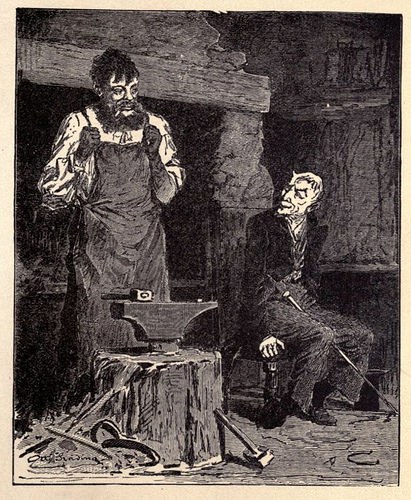
The Smith and The Devil
Once upon a time there was a smith who had a son six years old—a sturdy and sensible lad. One day the old man was going into the church, and stood in front of a picture of the Last Judgment. And he saw there was a devil painted there so terrible, so black, with horns and tail! "What a fine devil!" he thought. "I will go and paint such a devil for myself in the smithy." So he sent for a painter and told him to paint on the doors of the smithy a devil who should be exactly the same as the one he had seen in the church. This was done. From this time forward, the old man, whenever he went into the smithy, always looked at the devil and said, "Hail, fellow-countryman!" And soon after he would go up to the forge, light the fire, and set to work. So he went on living for some ten years on most excellent terms with the devil. Then he fell ill and died. His son succeeded him and took over the smithy. But he had no such respect for the devil as his father had had. Whether he went early to the smithy or not, nothing prospered; and, instead of greeting the devil kindly, he went and took his very biggest hammer and knocked the devil three times on his forehead, and then set to work. When a holy feast-day came by, he went into the church and lit a taper in front of the saints; but, as he approached the devil he spat on him. For three whole years this went on; and every day he greeted the unclean spirit with a hammer and spat on him.
11:4130/07/2018

The Pen and The Inkstand
In a poet's room, where his inkstand stood on the table, the remark was once made: "It is wonderful what can be brought out of an inkstand. What will come next? It is indeed wonderful." "Yes, certainly," said the inkstand to the pen and to the other articles that stood on the table; "that's what I always say. It is wonderful and extraordinary what a number of things come out of me. It's quite incredible, and I really never know what is coming next when that man dips his pen into me. One drop out of me is enough for half a page of paper—and what cannot half a page contain?
07:2327/07/2018
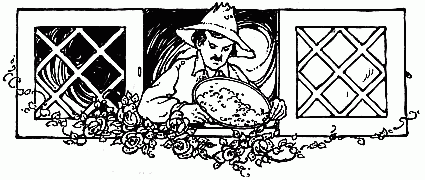
The Greenies
A rose tree stood in the window. But a little while ago it had been green and fresh, and now it looked sickly—it was in poor health, no doubt. A whole regiment was quartered on it and was eating it up; yet, notwithstanding this seeming greediness, the regiment was a very decent and respectable one. It wore bright-green uniforms. I spoke to one of the "Greenies." He was but three days old, and yet he was already a grandfather. What do you think he said? It is all true—he spoke of himself and of the rest of the regiment. Listen!
07:0325/07/2018

A Leaf From The Sky
High up yonder, in the thin clear air, flew an angel with a flower from the heavenly garden. As he was kissing the flower, a very little leaf fell down into the soft soil in the midst of the wood, and immediately took root, and sprouted, and sent forth shoots among the other plants. “A funny kind of slip that,” said the plants. And neither thistle nor stinging-nettle would recognize the stranger. “That must be a kind of garden plant,” said they. And they sneered; and the plant was despised by them as being a thing out of the garden.
10:1523/07/2018

The Listening King
Once upon a time there lived a king who liked to walk in disguise about the streets of the city, listening at people's doors. It was, in fact, his favorite amusement. Other kings of that land had been fond of war or hunting or fishing or games, but there had never before been one who liked to listen at doors. For this reason he was called "the listening king." "It is the greatest fun I have," he often said to his counsellors. "Being a king would be a stupid life if one didn't have some diversion." "Be careful that it does not get you into trouble," said the wise men. "We have often heard that listening to other people's secrets is a dangerous practice." "I've had nothing but pleasure from it, anyway," the king would reply. Then he would add, "So far, at least."
14:1320/07/2018

Lady Clare
Lady Clare was in her garden overlooking the sea. It was a summer’s day, and the many coloured butterflies flitted about under the trees and among the sweet smelling flowers. Lady Clare was combing her golden tresses with an ivory comb, seated on a crimson velvet cushion. She looked towards the sea, and she saw a gallant fleet making for the land. He who was in command stepped on shore. He was a belted knight, but his features could not be seen as his vizor was down. Approaching Lady Clare, he saluted her, and she thus addressed him— “Hast thou, noble knight, seen my husband, who bid me good-bye many years ago when he sailed for the Holy Land?” “I know not thy husband, fair lady. By what should I know him?”
05:4918/07/2018

Manoel Littlebean
Long ago there lived a man and his wife who had no children. “I wish I had a little boy,” said the man. “I’d like a son of my own even if he were not any larger than a little bean,” said the woman. Time passed and a son was born to this worthy couple. He was no larger than a little bean and as the years went by he never grew any bigger. His name was Manoel Littlebean. He caused his mother endless trouble by constantly getting lost. Sometimes she’d nearly step on him. Other times he’d fall into the food and she would almost swallow him. One day his mother couldn’t find him.
07:4116/07/2018
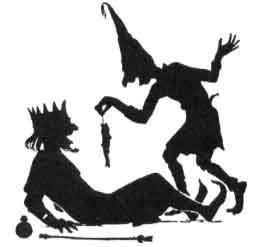
Princess of Canterbury
There lived formerly in the County of Cumberland a nobleman who had three sons, two of whom were comely and clever youths, but the other a natural fool, named Jack, who was generally engaged with the sheep: he was dressed in a parti-coloured coat, and a steeple-crowned hat with a tassel, as became his condition. Now the King of Canterbury had a beautiful daughter, who was distinguished by her great ingenuity and wit, and he issued a decree that whoever should answer three questions put to him by the princess should have her in marriage, and be heir to the crown at his decease.
08:4311/07/2018

The Golden Arm
Here was once a man who travelled the land all over in search of a wife. He saw young and old, rich and poor, pretty and plain, and could not meet with one to his mind. At last he found a woman, young, fair, and rich, who possessed a right arm of solid gold. He married her at once, and thought no man so fortunate as he was. They lived happily together, but, though he wished people to think otherwise, he was fonder of the golden arm than of all his wife’s gifts besides. Host Dan ScholzSubscribe to The Folktale Project at http://folktaleproject.com/subscribe
04:1909/07/2018

Old Esther Dudley
Boston had surrendered. Washington was advancing from the heights where he had trained his guns on the British works, and Sir William Howe lingered at the door of Province House,—last of the royal governors who would stand there,—and cursed and waved his hands and beat his heel on the step, as if he were crushing rebellion by that act. The sound brought an old woman to his side. “Esther Dudley!” he exclaimed. “Why are you not gone?”
06:2106/07/2018





